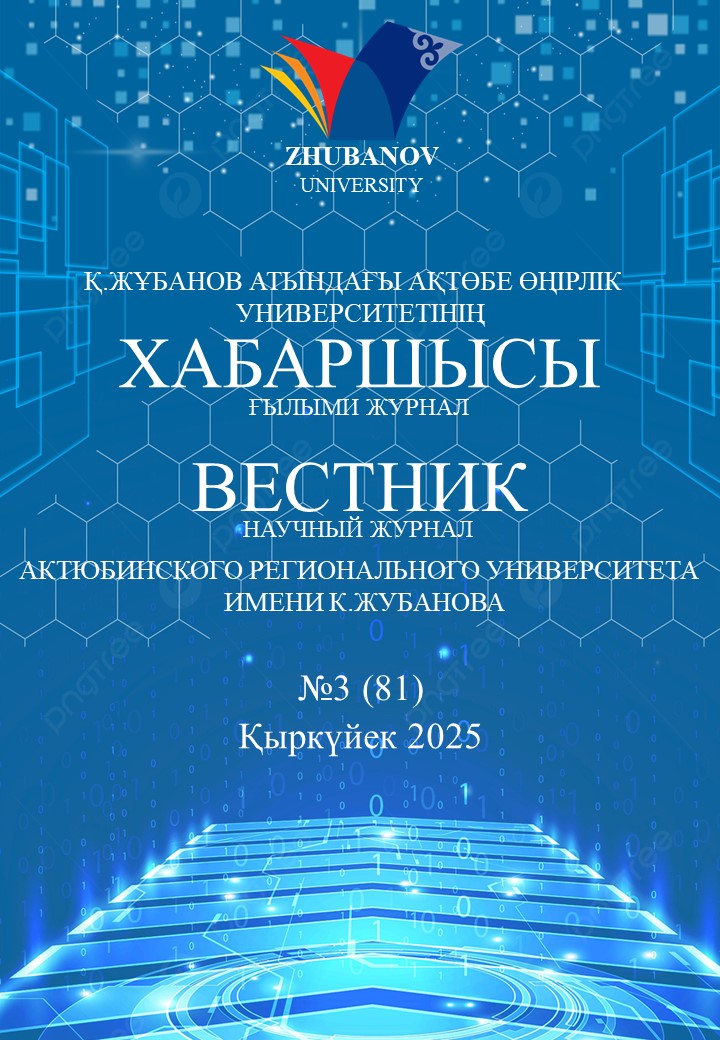This article is devoted to the study of increasing engagement and academic performance among 6th–7th grade students through the use of artificial intelligence methods in teaching the history of Kazakhstan. In the context of digital transformation in education, particular attention is given to the implementation of artificial intelligence as a tool for personalized learning, visualization of historical content, and increasing student motivation. The aim of the study is to empirically assess the impact of artificial intelligence tools on students' learning engagement and academic performance. The methodology is based on a formative pedagogical experiment conducted in a general education school with both control and experimental groups. The research employed methods of pedagogical observation and analysis of summative assessment results, which ensured methodological triangulation. The results showed that students in the experimental class demonstrated a higher level of engagement, initiative, and sustained cognitive activity. Despite a slight decrease in the proportion of high scores, an overall improvement in academic performance and a positive perception of innovative approaches were observed. The study complied with ethical standards: no surveys were conducted, and no personal data of students were used. The article highlights the practical value of implementing artificial intelligence in history lessons and recommends the use of such technologies considering students' age and cognitive characteristics, which may serve as a foundation for further pedagogical development.
BEGIMBAYEVA ZH.S.
Candidate of historical sciences, associate professor, K. Zhubanov Aktobe regional university, Aktobe, Kazakhstan
E-mail: zhibekbegimbayeva@gmail.com, https://orcid.org/0000-0002-9827-379X
SAITGALIYEVA A.R.
2nd year master's student, K. Zhubanov Aktobe regional university, Aktobe, Kazakhstan
E-mail: saitgaliev_a@mail.ru, https://orcid.org/0009-0002-0485-9923
- Poslanie Glavy gosudarstva Kasym-Zhomarta Tokaeva narodu Kazakhstana ot 1 sentyabrya 2023 g. «Ekonomicheskiy kurs spravedlivogo Kazakhstana». «The Economic Course of a Just Kazakhstan» Elektronnyy resurs: Rezhim dostupa: https://online.zakon.kz/Document/?doc_id=37321590. Data obrashcheniya 08.02.2025.
- Poslanie Glavy gosudarstva Kasym-Zhomarta Tokaeva narodu Kazakhstana ot 2 sentyabrya 2024 g. «Spravedlivyy Kazakhstan: zakon i poryadok, ekonomicheskiy rost, obshchestvennyy optimizm». Elektronnyy resurs: Rezhim dostupa: https://adilet.zan.kz/rus/docs/K24002024_1. Data obrashcheniya 04.04.2025.
- Postanovlenie Pravitel'stva Respubliki Kazakhstan ot 28 marta 2023 goda № 269. Ob utverzhdenii Kontseptsii tsifrovoy transformatsii, razvitiya otrasli informatsionno-kommunikatsionnykh tekhnologiy i kiberbezopasnosti na 2023–2029 gody. Elektronnyy resurs: Rezhim dostupa: https://adilet.zan.kz/rus/docs/P2300000269. Data obrashcheniya 04.04.2025.
- Holmes W., Byalik M., Fadel Ch. Iskusstvennyy intellekt v obrazovanii: Perspektivy i problemy dlya prepodavaniya i obucheniya / Ueyn Kholms, Maya Belik, Charl'z Feydel. – Per. s angl. – M.:Al'pina PRO, 2022. – 304 s.
- Pressey, S.L. (1950). «Development and appraisal of devices providing immediate automatic scoring of objective tests and concomitant self-instruction.» Journal of Psychology 30: 417–447 DOI: https://doi.org/10.1080/00223980.1950.9916043
- Skinner, B.F. (1958). «Teacher machines.» Science 128 (3330): 969–77 DOI: https://doi.org/10.1126/science.128.3330.969
- Grebenyuk E.V., Danielyan D.G., Danielyan S.S., Kramarov S.O. Iskusstvennyy intellekt v obrazovanii: vozmozhnosti, metody i rekomendatsii dlya pedagogov: uchebno-prakticheskoe posobie / Pod red. S.O. Kramarova. – Moskva: RIOR: INFRA-M, 2025. – 99 s.
- Elektronnyy resurs: Rezhim dostupa. Respublikanskiy informatsionno-analiticheskiy zhurnal «Sovremennoe obrazovanie», stat'ya A. Petrukhin, Iskusstvennyy intellekt: Pozitivnye vozmozhnosti i potentsial'nye riski, https://www.bilim.expert/post/искусственный-интеллект-позитивные-возможности-и-потенциальные-риски-интервью-саясат-нурбек, 05.04.2025
- Platov A.V., Gavrilina Yu.I., Iskusstvennyy intellekt v obrazovanii: evolyutsiya i bar'yery. // Nauchnyy rezultat. Pedagogika i psikhologiya obrazovaniya. T.10, № 1, 2024, s. 26–43
- Taktarova A.V., Sovremennye tendentsii razvitiya iskusstvennogo intellekta v obrazovanii i modeliruyushchie ego intellektual'nye sistemy // Kontsept. Nauchno-metodicheskiy elektronnyy zhurnal, 2024, №6, s. 317–327
- Mikhailova N.A. Potentsial iskusstvennogo intellekta v kontekste modernizatsii vysshego obrazovaniya i razvitiya kultury Kazakhstana, Kazakhskiy natsional'nyy pedagogicheskiy universitet imeni Abaya, Almaty
- Elektronnyy resurs: Rezhim dostupa. Digital-tekhnologii v shkolakh i vuzakh Kazakhstana: shest' yarkikh primerov ispol'zovaniya. https://informburo.kz/stati/digital-texnologii-v-skolax-i-vuzax-kazaxstana-sest-yarkix-primerov-ispolzovaniya, 22.04.2025
- Agzamov S.R. Iskusstvennyy intellekt v obrazovanii: osnovnye napravleniya i perspektivy razvitiya // Innovatsii v obrazovanii. — 2021. — № 4. — s. 15–23.
- Yermekov A.K., Zhaparova G.N. Ispol'zovanie tekhnologiy iskusstvennogo intellekta v obrazovatel'noy srede Kazakhstana // Nauchno-prakticheskaya konferentsiya «Tsifrovaya transformatsiya v obrazovanii». — Almaty: KazNPU, 2021. — s. 212–218.
- Tumanov I.V. Eticheskie aspekty primeneniya iskusstvennogo intellekta v obrazovatel'nykh sistemakh // Voprosy sovremennoy pedagogiki. — 2021. — № 6. — s. 78–85.


